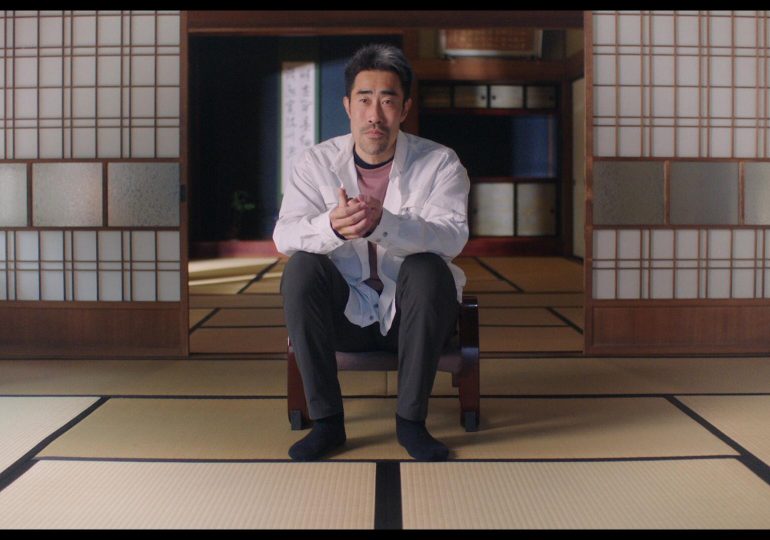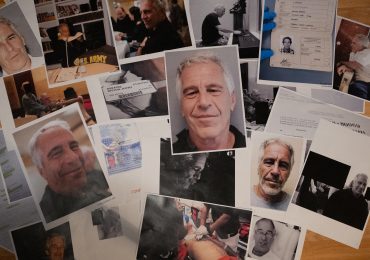Warning: This post contains spoilers for The Contestant.
Before shows like Survivor, Big Brother, and Naked and Afraid became American pop culture mainstays, there was Japanese reality TV series Susunu! Denpa Shōnen. Known for placing participants in extreme situations, Denpa Shōnen‘s most infamous challenge, 1998’s “A Life in Prizes,” made a star out of Tomoaki Hamatsu, an aspiring comedian nicknamed Nasubi who, for more than a year, lived alone and unclothed in a tiny apartment while surviving off magazine sweepstakes winnings.
[time-brightcove not-tgx=”true”]
The twist? While Nasubi knew he was being filmed, he had no idea the footage was being broadcast to over 15 million people each week on the Nippon TV network.
In Hulu’s new documentary The Contestant, now streaming, British filmmaker Clair Titley (Britain’s Oldest Stand Up, The British Woman on Death Row) revisits the 15 months that Nasubi spent in isolation—and what happened when he emerged to find he had unwittingly become a national celebrity. Titley says she found herself drawn in by the unusual details of Nasubi’s story. “You know when you’re supposed to be working on one thing and then all of a sudden you’re like, hang on a second, this is looking a bit more interesting,” she says.
But after falling down an internet rabbit hole on the subject, Titley came away feeling like the majority of the information available online was “quite simplistic.”
“A lot of it was almost derogatory about Japanese culture,” she says. “It was a bit point-and-laugh at the Japanese, look how crazy they are, and that was it. I had all these questions. I wanted to know more about the human side of Nasubi’s story both during and after Denpa Shōnen.”
The Contestant utilizes archival footage, news segments, and interviews with Nasubi, Denpa Shōnen producer Toshiba Tsuchiya, and others close to the story to dig deeper into what Nasubi experienced and how greatly it impacted his life. “It was difficult to revisit the past because I did have a big hole in my heart,” Nasubi told TIME of reliving his time on the show. “So it was a bit traumatic for me.”
Noting that while it may seem easy to look back on “A Life in Prizes” as overtly cruel, Titley says one of her earliest meetings with Tsuchiya made her question her outlook on how Denpa Shōnen compares to today’s reality TV. “We put it to him that people are going to think this was one of the cruelest things on television,” she says. “And he said to us, ‘Well the Japanese would never do something as cruel as Love Island.’ We can sit here and judge but how far have we come really?”
Here’s what to know about the true story behind The Contestant.
What happened to Nasubi during “A Life in Prizes”?
After winning a random drawing at a January 1998 audition in Tokyo, Nasubi was taken to a small, sparsely furnished room, cut off from outside communication, told to strip naked, and challenged to enter and survive on the winnings from mail-in magazine sweepstakes until he had earned the equivalent of 1 million yen (around $8,000) in prizes.
He was told there was a camera in the room, but that most of the footage would likely never air—a ploy by producers to get him to act more naturally. Instead, a segment called “A Life in Prizes” began to run weekly on Denpa Shōnen—and quickly skyrocketed in popularity. In the first few weeks, before Nasubi had received any prizes, producers gave him crackers so that he wouldn’t starve to death. After he started winning, he survived by eating everything from fiber jelly to rice to dog food.
Obscuring his genital area with first a black circle and later an eggplant emoji—a nod to the childhood nickname Nasubi, the Japanese word for “eggplant” and a joking reference to the shape of his face— “A Life in Prizes” showcased Nasubi filling out countless sweepstake entry forms, celebrating with a dance each time he won a prize, and going about his daily business. They gave him a diary, which was published during his time in the room and became a best-seller in Japan.
While Nasubi could have told producers he wanted out at any time, his mental health deteriorated to the point that he felt like he couldn’t leave. Physically, he was losing weight and hair, struggling to sleep, and suffering from near-constant aches and pains. In The Contestant, Nasubi speaks about how he frequently wished for death during his time in the room.
After almost a year, Nasubi reached his goal of 1 million yen and was finally allowed to leave. However, after being taken to South Korea by Tsuchiya for a celebratory meal of Korean BBQ and a day at an amusement park, he was brought to another tiny apartment and told that he needed to repeat the process until he had earned the prize equivalent of a flight home. While Denpa Shōnen was edited to make it seem as though Nasubi agreed immediately, it actually took Tsuchiya several hours to convince him to stay.
“In my life, that year and three months was the bottom of hell,” Nasubi told TIME. “But the worst moment was when I finished the task in Japan, was taken to Korea, and Tsuchiya told me to do it again. In the show, it looked like I just took off my clothes right away. But it was actually a long process to get me to agree. Tsuchiya said that when he asked me to do it again, he saw anger come out of every pore in my skin. That’s how much hatred was inside me at that time.”
After another three months, Nasubi reached his goal and, while still naked and unaware of his fame, was brought in front of a live studio audience to commemorate the end of his time on the show. The footage used in The Contestant shows Nasubi looking completely shocked and disoriented as the audience cheers.
“One of the things I was really conscious of when making this film was the fact that I was a Western filmmaker making a film about something that happened in Japan,” Titley says of what she wanted to convey about the tone of Japanese unscripted TV at the time. “[The West] has a history of simplifying and belittling Japanese culture. So one of the decisions [producer Megumi Inman] and I made early on was that we did not want to have a Western historian as a voice of God telling viewers what to think.”
During his interviews in The Contestant, Tsuchiya speaks in what seems to be a cold and callous way about what he did to Nasubi and comes off as unremorseful about his actions. When asked how he feels about Tsuchiya today, Nasubi told TIME that his emotions are complicated. “I still have hatred toward him,” he says. “But he did agree to be interviewed for this film and helped us get footage from Nippon TV. So that was kind of an act of redemption.”
What about after the show?
The final half hour of The Contestant explores what happened to Nasubi following his time on Denpa Shōnen, delving into his struggles to re-adapt to real life and cope with sudden fame before ultimately rediscovering purpose in helping others.
Following the 2011 earthquake and tsunami in Japan, which resulted in a major nuclear accident in Nasubi’s hometown of Fukushima, Nasubi devoted himself to rescue and relief efforts. “I was traumatized. And the people of my hometown, Fukushima, were the people who had helped fill the hole in my heart,” he told TIME. “So when the earthquake happened, of course I wanted to help my local people. I realized the struggles of my past could be useful in a situation like that, which was a surprise to me. I came to the conclusion that maybe that’s what it all for and this was my destiny.”
Nasubi eventually decided to climb Mount Everest to raise awareness of the disaster and, despite his negative feelings for Tsuchiya, reached out to the producer for help funding the trip. “I didn’t have contact with him for more than 10 years and, during that time, he was a symbol of hate for me, someone I really despised,” Nasubi says. “But when I decided to climb Everest, I contacted him for the first time and he said, ‘I would do anything to help you,’ and apologized for all of the awful things he put me through.”
After three failed attempts in 2013, 2014, and 2015, Nasubi succeeded in summiting Everest in 2016. Today, his commitment to helping others continues to guide his life. “Twenty-five years have passed [since “A Life in Prizes], so I’ve changed and the people around me have changed as well. I’ve realized that I cannot change the past but by changing how I think about who I am today I can always change the future,” he says. “When you put energy into other people rather than just focusing on yourself you become stronger than you could ever imagine.”
Leave a comment








